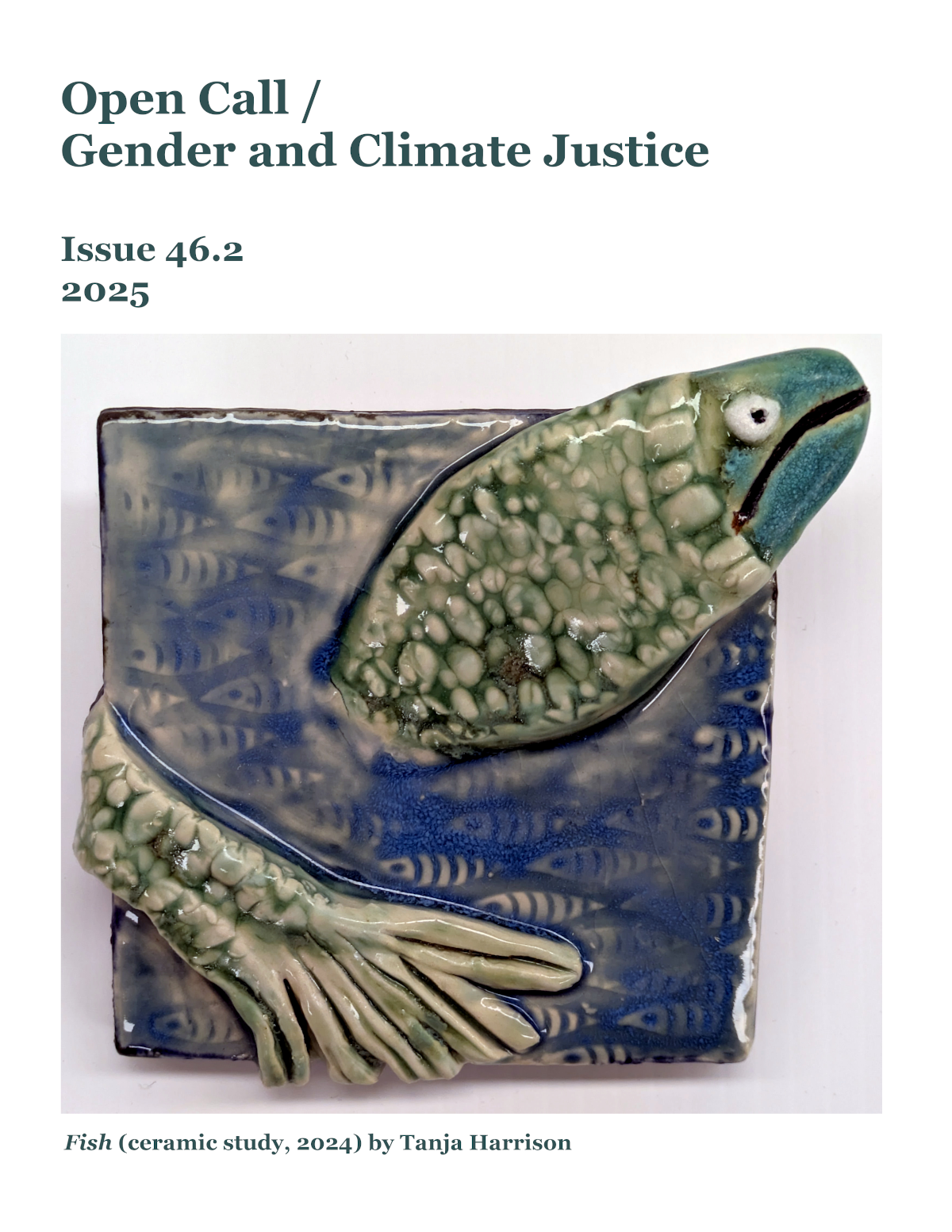Uncertainty and Other Forms of Hope
An Environmental Pedagogy
Keywords:
climate change, creative writing, environmental pedagogy, future, hope, nature writing, place, uncertaintyAbstract
It’s axiomatic to declare that an environmental pedagogy, especially for women, queer folks, BIPOC people, assault survivors, and anyone who identifies as disabled or vulnerable, is vital to making space for ourselves geographically and psychologically in our workplaces and neighbourhoods. It is equally necessary politically at this stage of late capitalism where the spiked club of use-value is wielded to commodify everything, including our experiences of nature. Trust, risk, and the precarious present have been drawn sharply into pedagogical focus in recent years, exacerbated in the classroom and elsewhere by students’ anxieties about the future that manifest as a withdrawal from the uncertainties of the present moment, including—but not exclusive to—climate anxiety. This article’s examination of living in that shifting “now,” in classroom discussions and in writing assignments, considers the important entanglement of uncertainty and experience as they inform, or even form, hope.
References
Berlant, Lauren. 2011. Cruel Optimism. Durham: Duke University Press.
Charette, Leanne. 2024. Panel discussion. Launch of “Moving On Land” issue of The Goose. Association of Literature of Environment and Culture in Canada conference, Waterloo, Ontario. 19 June.
Engel, Marian. Bear. 1976. Toronto: McClelland and Stewart.
Hamilton, Scott. 2017. “Securing Ourselves From Ourselves? The Paradox of ‘Entanglement’ in the Anthropocene.” Crime, Law, and Social Change 68: 579–595.
Haraway, Donna. 1991. Simians, Cyborgs and Women: The Reinvention of Nature. New York: Routledge.
Hersey, Tricia. 2022. Rest is Resistance: A Manifesto. New York: Little, Brown.
Kimmerer, Robin Wall. 2013. Braiding Sweetgrass: Indigenous Wisdom, Scientific Knowledge and the Teaching of Plants. Minneapolis, MN: Milkweed Editions.
LaLonde, Julie S. 2023. “Stand Up Canada: Bystander Intervention Training." Right to Be. Online workshop.
Morton, Timothy. 2016. Dark Ecology: For a Logic of Coexistence. New York: Columbia University Press.
Nixon, Rob. 2011. Slow Violence and the Environmentalism of the Poor. Cambridge: Harvard University Press.
Perl, Sondra and Mimi Schwartz, eds. 2014. Writing True: The Art and Craft of Creative Nonfiction. Boston: Wadsworth.
Ray, Sara Jaquette. 2020. A Field Guide to Climate Anxiety: How to Keep Your Cool on a Warming Planet. Oakland, CA: University of California Press.
Roman, Aja. 2018. “Hopepunk, the Latest Storytelling Trend, Is All About Weaponized Optimism.” Vox 27.
Sharpe, Christina. 2016. In the Wake: On Blackness and Being. Durham, NC: Duke University Press.
Solnit, Rebecca. 2016. Hope in the Dark: Untold Histories, Wild Possibilities. Chicago: Haymarket Books.
Strayed, Cheryl. 2012. Wild: From Lost to Found on the Pacific Crest Trail. NY: Random House.
Swenson, May. 1994. “Question.” Nature: Poems Old and New. Boston: Houghton Mifflin Harcourt.
Thoreau, Henry David. 1854. Walden, or Life in the Woods. Boston: Ticknor and Fields.
Williams, Raymond. 1989. Resources of Hope: Culture, Democracy, Socialism. London: Verso.
Downloads
Published
Issue
Section
License
Copyright (c) 2025 Tanis MacDonald

This work is licensed under a Creative Commons Attribution 4.0 International License.
Authors who publish with this journal agree to the following terms:
1. Authors retain copyright and grant the journal right of first publication, with the work simultaneously licensed under a Creative Commons Attribution 4.0 International License that allows others to share the work with an acknowledgement of the work's authorship and initial publication in this journal.
2. Authors are aware that articles published in Atlantis are indexed and made available through various scholarly and professional search tools, including but not limited to Erudit.
3. Authors are able to enter into separate, additional contractual arrangements for the non-exclusive distribution of the journal's published version of the work (e.g., post it to an institutional repository or publish it in a book), with an acknowledgement of its initial publication in this journal.
4. Authors are permitted and encouraged to preprint their work, that is, post their work online (e.g., in institutional repositories or on their website) prior to and during the submission process. This can lead to productive exchanges, as well as earlier and greater citation of published work. Read more on preprints here.







